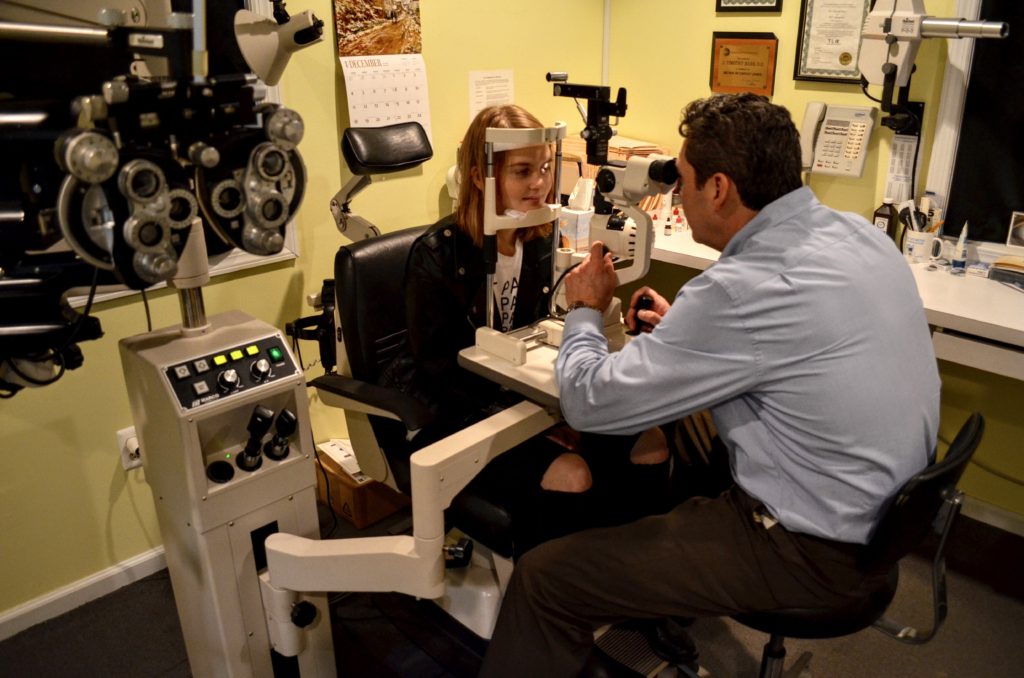Allergies are very common once the weather starts to warm up and they can be very irritating for those of us susceptible to them. Thankfully, treatment does not have to be very expensive and is usually quite accessible. Here is some information regarding allergies and how they affect the eye.
The symptoms of eye allergies include burning, redness, itching and clear, watery discharge. They also may include sneezing, a stuffy nose or sniffling.
These symptoms can be triggered by outdoor allergens, indoor allergens, or irritants. Outdoor allergens include pollen from weeds, trees and grass. Indoor allergens consist of pet dander, dust mites and mold. Irritants may also come in the form of smoke from cigarettes, gas exhaust and perfume.
Before jumping straight to medication, try making changes to your behavior and home. First, when allergy season comes around, keep the windows closed in your house and in your car and use air conditioning to filter the air. When you go outside, wear sunglasses or glasses to keep pollen out of your eyes. If you have any pets, wash your hands after touching them to make sure you eliminate the allergens from your skin. Also, if dust mites are a concern, use mite-proof sheets to help eliminate the dust mites.
If these methods do not reduce the problem, the next step would be to try over-the-counter medications. These items include oral antihistamines, decongestant eye drops, and artificial tears. Oral antihistamines have the potential to dry out your eyes and worsen the symptoms. It should also be noted that decongestant eye drops should not be used for “red eye” too frequently or this may result in worsened symptoms as well.
For potentially more effective medications, it is smart to see an allergist for prescription medication. Prescription medication for allergies come in a wide variety ranging from decongestant or antihistamine eye drops to allergy shots and non-sedating oral antihistamines. These must be taken more seriously and will cost more money than the over-the-counter methods.
Since there are many potential causes for allergies, it is important to talk to your doctor before deciding on a treatment type. This way you can determine the safest and most effective treatment for your specific condition and symptoms.


